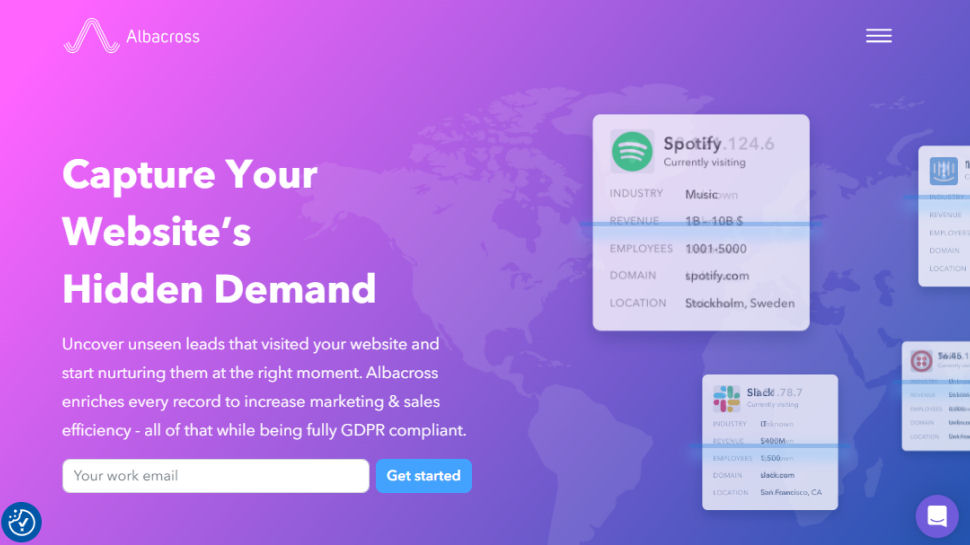What is lead tracking and how does it work?
From prospect to conversion, it's important to track customer leads all the way

Sign up for breaking news, reviews, opinion, top tech deals, and more.
You are now subscribed
Your newsletter sign-up was successful
Reader Offer: Save 18% on Monday.com annual memberships
Monday.com is an easy-to-use and customizable work management platform, enabling teams of all sizes to plan, manage and centralize work. Get started now and boost your team's communication and productivity.
Preferred partner (What does this mean?)
What is lead tracking and how does it work?
What is lead tracking?
Lead tracking describes the process of identifying the sources of prospects, placing them in the context of the sales funnel, and taking the appropriate steps to complete the sale. Lead tracking can be invaluable to both sales and marketing teams, helping both to make informed decisions and allowing businesses to maximize their profitability.
There are a variety of different methods when it comes to lead tracking. Some organizations will track leads using their cloud CRM software, with the CRM connected to the company’s ecommerce website to automatically track inbound leads. The CRM should also run some analytics on top of its lead tracking functionality so leads can be grouped together and sales teams can enjoy more detailed insights. Google Analytics also has some lead-tracking functionality but there are some limitations in that it is difficult to track leads prior to converting.
Features

There are a range of lead-tracking features that businesses can use to increase the productivity of their sales team and supercharge revenue. This includes automated data capture functionality that is particularly useful if businesses have multiple channels across which prospective customers engage with the brand. This means that whether it's via web, email, WhatsApp, or any other channel, tools collect lead data without employees having to manually enter customer records.
Intelligent routing can also ensure that lead data gets to the right sales rep. Often businesses will assign particular agents to certain customer segments, such as by geography or demographic. The right lead tracking feature will automatically assign leads to the correct agent based on pre-determined characteristics. This means leads can be acted upon quickly and, hopefully, lead to a sale.
Reporting and analytics are additional features of the best lead-tracking tools. These play a vital role in measuring acquisition rates, conversion statistics, sale ratios, and other important metrics. Without this level of insight, the data collected by any lead tracking tool can just appear like a jumble of numbers. Analytics transforms data into useful insights.
And given that lead-tracking solutions can store large quantities of information about customers, some of it of a sensitive nature, security is another important facet of any program. Security should safeguard against internal data leaks and external breaches because the reputational and financial damage doesn’t bear thinking about. If its security is lacking, it doesn’t matter how many leads your software turns into conversions, your business will suffer in the long run.
Benefits
Sales don’t just happen and lead tracking provides added visibility into the process leading up to conversion. The ability to manage customer journeys better is one of the major advantages of lead tracking, enabling businesses to see where each lead resides within the sales funnel. Through the optimization of the customer journey, you can improve retention and long-term loyalty.
Sign up to the TechRadar Pro newsletter to get all the top news, opinion, features and guidance your business needs to succeed!
Lead tracking can also help you deliver personalization. By tracking leads, companies can see exactly how individuals engage with your brand and other important information, so whenever you’re sales or marketing team interacts with them, the customer isn’t just anyone - they have information to use in their outreach efforts. With many customers preferring a personalized approach, leveraging this data can lead to an increase in sales.
In terms of outlining your future prospects, lead tracking also provides the data to improve your forecasting. Rather than simply going off a hunch, lead-tracking tools offer data-backed insights and visibility. You can see how many opportunities convert and where bottlenecks are in your sales process. This, in turn, can help you identify areas for improvement. It can result in more accurate ROI figures and help with goal setting.
Some leading solutions

There are a large number of business tools that incorporate some level of lead-tracking functionality. For example, Albacross is an internet marketing service from Sweden where leads play a fundamental role in its output. Albacross identifies potential leads visiting your website in real time and highlights their navigation habits. The program also boasts of its GDPR compliance and its use of more than 100 data points to turn anonymous website traffic into valuable lead data,
Other leading solutions offering lead-tracking features include well-known CRM tools like HubSpot and Zendesk. The added benefit of these tools is that they come with all the additional functionality that businesses have come to expect from CRMs, like contact management and business intelligence. Of course, businesses may have to pay more for these features, but there are open-source CRMs that don’t cost a penny and still boast excellent lead-tracking features.
Do you really need lead tracking?
Although businesses may not necessarily need lead tracking features, they can provide significant advantages within their sales processes. They provide much-needed visibility into the customer journey that allows sales teams to more easily transform prospects into revenue.
Without lead tracking features, businesses are working in the dark and it becomes difficult to see what channels customers are using to engage with your brand and which strategies are delivering the highest conversion rates. Lead tracking is hugely useful for understanding how and why individuals make a purchase with your company and how one sale can quickly lead to another.
Barclay has been writing about technology for a decade, starting out as a freelancer with ITProPortal covering everything from London’s start-up scene to comparisons of the best cloud storage services. After that, he spent some time as the managing editor of an online outlet focusing on cloud computing, furthering his interest in virtualization, Big Data, and the Internet of Things.

